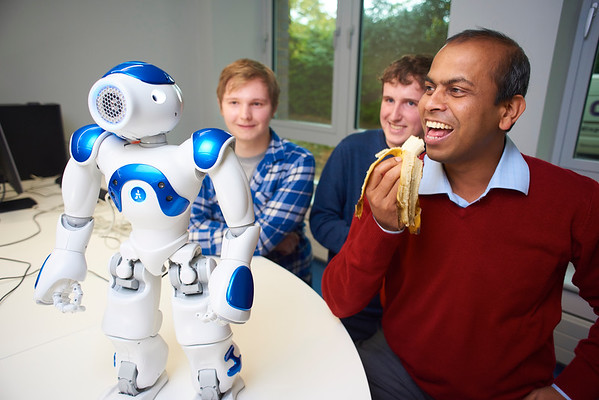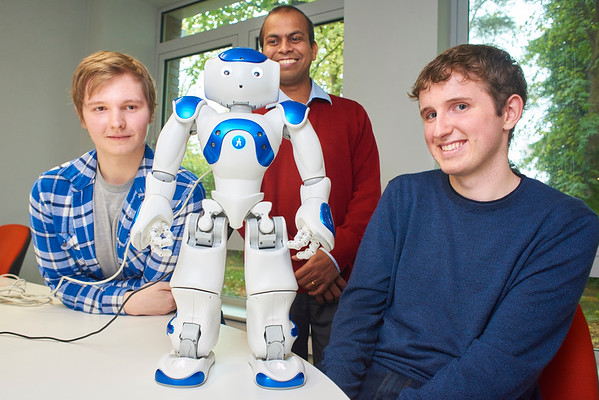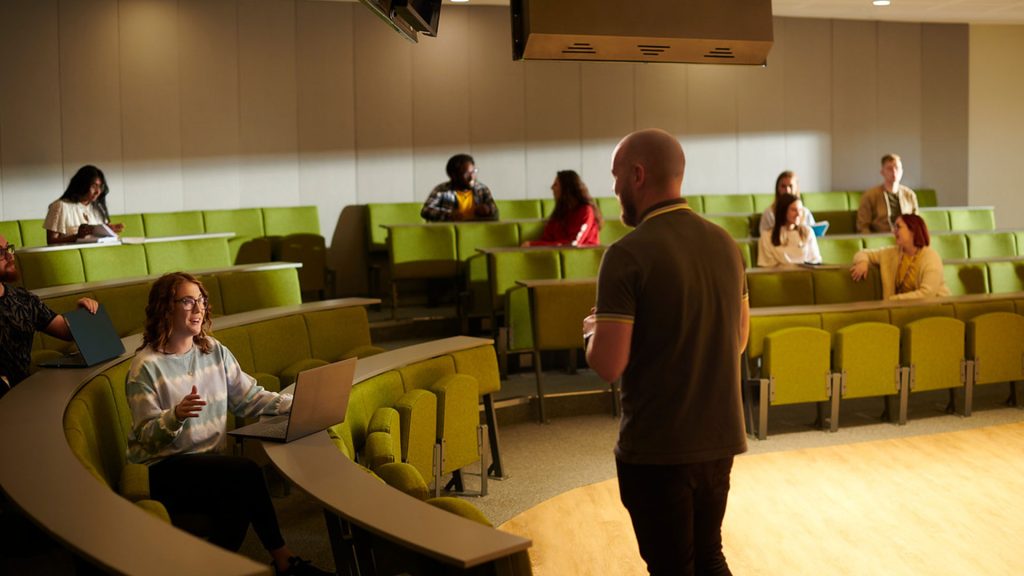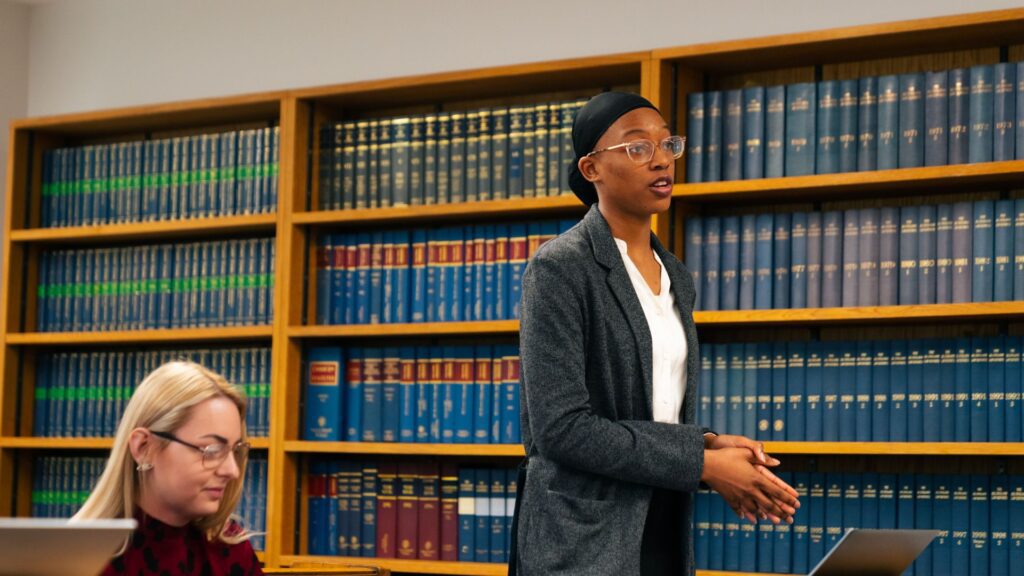Professor Ardhendu Behera, Professor of Computer Vision and Artificial Intelligence at Edge Hill University, has focused his research in this area for the last eight years, and brings his knowledge and expertise to the forefront of his teaching. We caught up with him to find out about his latest research projects, and how students in our Department of Computer Science can get involved.
What comes to mind when you think of artificial intelligence? In recent years, movies like I, Robot and Avengers: Age of Ultron have depicted robots that were designed and programmed to assist human beings, but end up doing quite the opposite. In these scenarios, not much attention is given to the sheer amount of work that goes into programming robots so that they become intelligent systems/machines. There is a whole wealth of expertise and knowledge involved in AI – such as data analytics, programming and computer vision. Here at Edge Hill, we have experts who are front-runners of international research projects looking at how we can harness newly emerging technologies and use them for the greater good.
“Over the last 50 years, technology has grown and developed beyond what we could have dreamed of, and with this growth comes fantastic opportunities to use technology to help people in many different situations. One of the research projects I’m leading on at the moment focuses on how AI could be used to improve early diagnosis of pancreatic cancer. Through carrying out research into how the cells change during the early stages of cancer, and using data analysis and programming to teach AI how to detect these early signs or ‘biomarkers’, we hope to be able to detect pancreatic cancer much earlier in the patient journey. This has the potential to make a huge positive difference in the medical community, on a global scale. We live in a modern age of gadgets and technology, so how can we use this to our advantage to improve quality of life? That’s what my research looks at.
“One of the research projects I’m leading on at the moment focuses on how AI could be used to improve early diagnosis of pancreatic cancer… using data analysis and programming to teach AI how to detect these early signs or ‘biomarkers’, we hope to be able to detect pancreatic cancer much earlier in the patient journey.”

“Another area of research that I’ve focused on since 2016 is centred around autonomous vehicles. This is an international project, allowing me to work with experts at the UK and India’s top universities, and again focuses on how we can use today’s technology to advance connected and autonomous vehicles to improve quality of life for people with limited mobility. My role in this project is to apply my expertise in AI and data analytics to develop the intelligent systems within new cars, to allow them to make smart decisions. I do this by analysing data from road traffic conditions, as well as the behaviour of human drivers in the moments leading up to an accident, and then use this data to train the brain of a car to spot signals of an inattentive or distracted driver. Not only will this make cars much safer, but it also opens the door to the potential of ‘driverless’ cars. We might find that over the next five to ten years, car users will become commuters rather than drivers – using their journey to reply to emails, read a book, or browse social media. If we can programme a car to understand that a driver is busy doing something else, and that it needs to make safe and smart decisions on the drivers’ behalf, that’s where automation can really come into its own.”
Students are able to get involved with Ardhendu’s research alongside their studies, gaining practical experience and putting theory into practice. One of Edge Hill’s resident robots, Robbie, was programmed by a team of students to support people with dementia. Ardhendu led this project, too, with support from Edge Hill’s Student Opportunity Fund and Research Investment Fund.

“During the first stage of Robbie’s programming, our students trained him to recognise over 80 common objects, human actions and emotions through data analytics and programming. We then used scenes from the popular soap opera Emmerdale, as the Alzheimer’s Society described Ashley Thomas’ storyline as a ‘realistic portrayal’ of the condition.
“Students worked on breaking scenes from the show into over 65,000 images, and were able to use these to programme Robbie to recognise facial expressions and body language. This project was a great example of the potential robotics and AI have to provide help, support and companionship to elderly people or those in need.”
Zachary, one of the students who worked on the project, recognised the potential importance of the work he did.
“The aim is for Robbie and robots like him to look for clues as to when the person might be beginning to show aggressive behaviour and perhaps offer a distraction to help them calm down. It might be through playing music or showing a video, talking to them. The potential use of robots is huge as they can not only help with the daily routine of a sufferer for friends and family but could potentially intervene in situations to help.”
Ardhendu brings his real-world examples and experience into the classroom to help students learn how computer vision and AI can be applied to solve real problems. He teaches on the Robotics and AI, Intelligent Systems and Programming modules, and all of his teaching is driven by his current research – making our students’ learning as authentic as possible.

May 9, 2022


